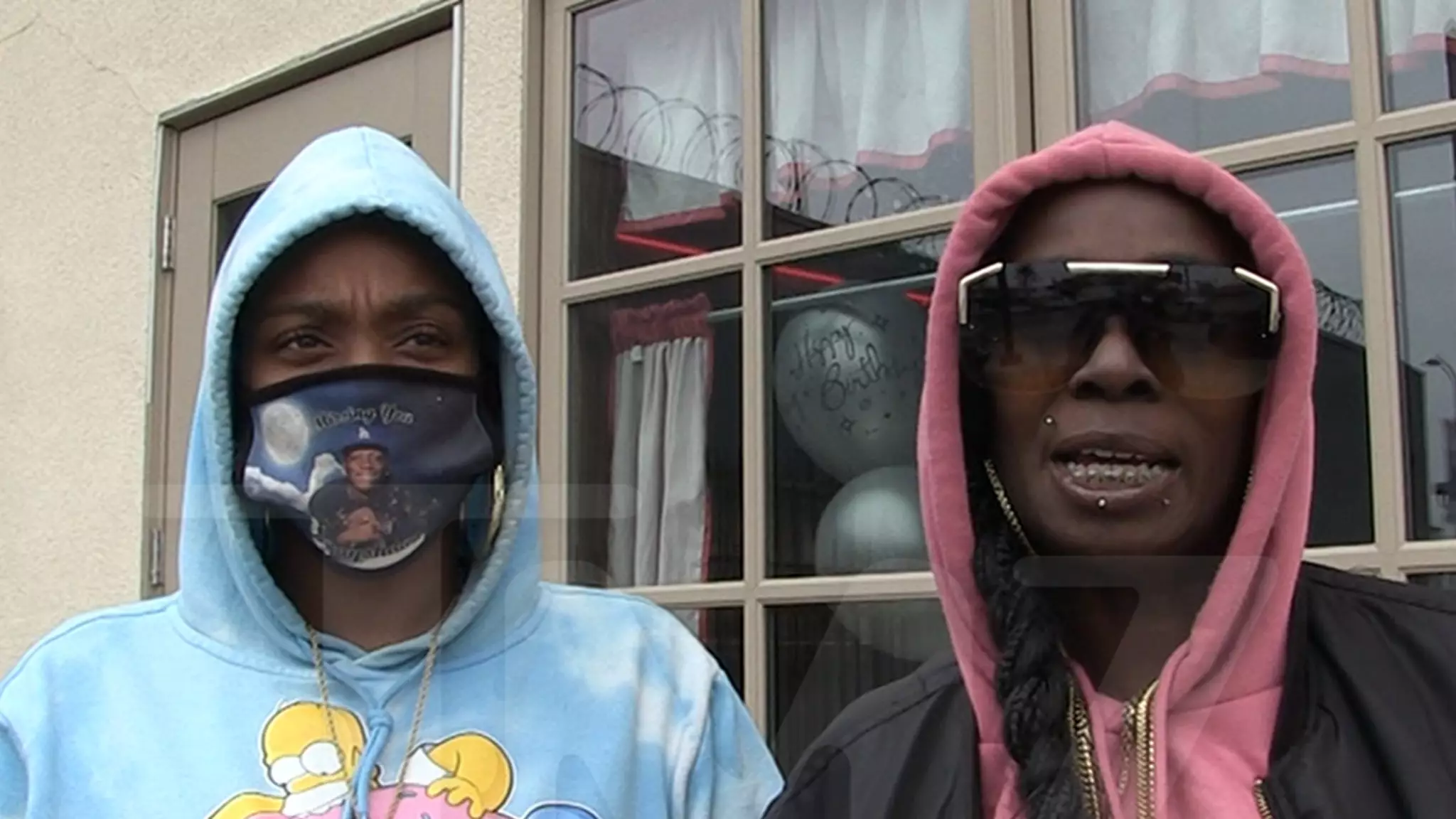Los Angeles, a city pulsating with dreams and aspirations, is no stranger to the juxtaposition of creativity and violence, particularly in the hip-hop scene. The recent legal troubles surrounding Eugene “Big U” Henley Jr. have exploded into the spotlight, casting a grim shadow over the world of music and mentorship. Big U’s not-guilty plea to serious charges including murder has sparked outrage, not just from the authorities, but from the grieving family of Rayshawn Williams, the artist at the center of this tragedy.
It is reported that Williams, who was purportedly gunned down by Big U following a dispute in Las Vegas, was more than just a client; he was an underdog in the music industry nurtured by Big U’s label, Uneek Music. Their relationship, however, was fraught with tension—a bitter irony for someone supposedly guiding young talent. As details emerged from the federal indictment, it seems that a creative expression turned deadly when Williams allegedly dissed Big U in a song. Such an act, in the competitive and often ruthless rap industry, could ignite retaliation.
A Mother’s Heartbreak
Shadonna Brown, the grieving mother, embodies a deep and complicated emotional landscape—anger intertwined with sorrow. Her claims against Big U are more than a mere reflection of personal loss; they symbolize a broader narrative of betrayal. In a recent interview outside Roscoe’s Chicken and Waffles, she articulated her pain, attributing “a mother’s intuition” to her conviction that Big U was involved in her son’s death. This intuition, a gut feeling that often serves as a protective mechanism for parents, becomes a haunting reality in her context.
What makes her story even more devastating is the revelation of a familial bond: her son shared a history with Big U’s own son, having played football together at Crenshaw High School. These seemingly innocent threads of connection complicate the narrative, revealing a community tethered together by bonds of friendship and, horrifically, betrayal. The notion that a mentor could betray a protégé to the point of death exemplifies the dark underbelly of loyalty in the industry.
Threats, Fears, and the Path Forward
Brown’s decision to initiate a GoFundMe campaign to cover relocation costs signifies the urgent threats her family faces. This move is not just about physical safety but also a search for emotional peace in the aftermath of violence. It raises uncomfortable questions: How often do aspiring artists and their families find themselves caught in the crossfire of misplaced trust and violent retribution? Brown’s sentiments are poignant; her anger towards Big U reflects a widely shared desire for accountability over a culture that often protects its own, even when it’s deeply flawed.
Caught in this maelstrom is Adam22’s No Jumper brand, which has also found itself entangled in allegations flying around the case—a reminder that the effects of violence seep into the very fabric of the community, leaving no one untouched. The entanglement of personal relationships and business ventures in the world of hip-hop illustrates a precarious balancing act—one that can tragically tip into chaos.
In a world where the lines of loyalty and betrayal blur, what does it mean to truly support emerging talent? As we witness the unfolding story, the ramifications of Big U’s alleged actions serve as a stark reminder of the potential consequences lurking beneath the surface of mentorship in a cutthroat industry.

